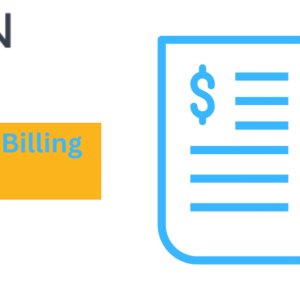In today’s fast-paced, customer-driven economy, businesses are under increasing pressure to deliver products faster, more efficiently, and at a lower cost. Managing logistics in-house can be complex and costly—requiring investment in warehouses, fleets, technology, and skilled staff. This is where Third-Party Logistics (3PL) providers step in as a game-changing solution.
3PL providers offer outsourced logistics services, including transportation, warehousing, inventory management, order fulfillment, and supply chain optimization. By leveraging their expertise and infrastructure, businesses can focus on their core strengths while delivering a better customer experience.
In this blog, we’ll explore what 3PL is, how it works, and the many ways it can transform your business.
What Is Third-Party Logistics (3PL)?
Third-Party Logistics refers to outsourcing all or part of your logistics and supply chain operations to a specialist company. These providers act as an extension of your business, handling critical processes such as:
- Transportation and Freight Management – Shipping products domestically or internationally.
- Warehousing and Distribution – Storing goods in strategically located facilities.
- Order Fulfillment – Picking, packing, and delivering products to customers.
- Inventory Management – Tracking stock levels in real time to prevent shortages or overstocking.
- Reverse Logistics – Handling returns, repairs, and product recycling.
Some 3PLs also integrate advanced technologies like warehouse automation, AI-powered demand forecasting, and real-time shipment tracking to ensure maximum efficiency.
The Business Benefits of 3PL Services
- Cost Savings and Efficiency
Building your own logistics infrastructure requires massive investments—warehouses, trucks, technology systems, and manpower. A 3PL eliminates these overhead costs by letting you share resources with other clients. They already have the facilities, equipment, and staff, meaning you only pay for the services you use.
Additionally, 3PLs have established carrier relationships, allowing them to negotiate better shipping rates that you may not be able to secure on your own.
- Scalability and Flexibility
Business demand isn’t always constant—there are peak seasons, product launches, and sudden market shifts. A 3PL gives you the flexibility to scale operations up or down as needed.
For example, during the holiday season, a 3PL can quickly allocate more space, staff, and transport to meet the spike in orders. When demand slows, you can scale back without being stuck with unused resources.
- Expertise and Industry Knowledge
Logistics is more than just moving products—it involves complex regulations, customs requirements, and compliance standards, especially for international shipping. A 3PL’s expertise ensures you avoid costly mistakes, delays, and legal issues.
They also stay ahead of industry trends and technologies, meaning your supply chain will always be competitive and up-to-date.
- Faster Delivery and Improved Customer Service
Customers expect fast and reliable delivery. Many 3PL providers operate multiple warehouses across different regions, allowing them to store your products closer to your customers. This reduces shipping times and costs, improving overall customer satisfaction.
Some even offer same-day or next-day delivery options, which can significantly boost your competitive advantage.
- Access to Advanced Technology
Top 3PLs use sophisticated logistics technology, including:
- Warehouse Management Systems (WMS) – For real-time inventory tracking.
- Transportation Management Systems (TMS) – For optimizing delivery routes.
- Order Management Software – For seamless order processing.
By outsourcing, you gain access to these tools without having to invest in expensive systems yourself.
- Focus on Core Business Activities
Running logistics in-house can be time-consuming, pulling attention away from your core functions like product development, marketing, and customer service. With a 3PL handling logistics, your team can dedicate more energy to growing the business.
When Should You Consider Using a 3PL?
A 3PL can benefit almost any business, but it’s especially valuable if you:
- Are expanding into new regions or markets.
- Experience seasonal spikes in demand.
- Lack the resources or expertise to manage logistics in-house.
- Want to improve delivery speed and reliability.
- Need to handle complex international shipping requirements.
How to Choose the Right 3PL Partner
Not all 3PLs are created equal, so it’s important to select one that aligns with your business needs. Consider the following factors:
- Experience in Your Industry – Choose a provider familiar with your products and customer base.
- Technology and Tracking Capabilities – Ensure they use modern, integrated systems.
- Network and Infrastructure – Check warehouse locations, transportation fleet, and carrier partnerships.
- Scalability – Can they grow with your business?
- Customer Service Quality – Look for responsiveness, transparency, and reliability.
When Should You Consider Using a 3PL?
A 3PL can benefit almost any business, but it’s especially valuable if you:
-
Are expanding into new regions or markets.
-
Experience seasonal spikes in demand.
-
Lack the resources or expertise to manage logistics in-house.
-
Want to improve delivery speed and reliability.
-
Need to handle complex international shipping requirements.
-
Final Thoughts
Third-Party Logistics isn’t just a cost-cutting measure—it’s a strategic partnership that can drive business growth, customer satisfaction, and operational excellence. By outsourcing to an experienced 3PL, you gain the flexibility, scalability, and expertise to compete in today’s demanding market.
In an era where speed, efficiency, and customer experience are everything, leveraging a 3PL could be the transformation your business needs to stay ahead.
If you’d like, I can also create an SEO-optimized version of this blog with keywords like “3PL logistics services,” “outsourcing logistics,” and “supply chain optimization” to improve search rankings.



